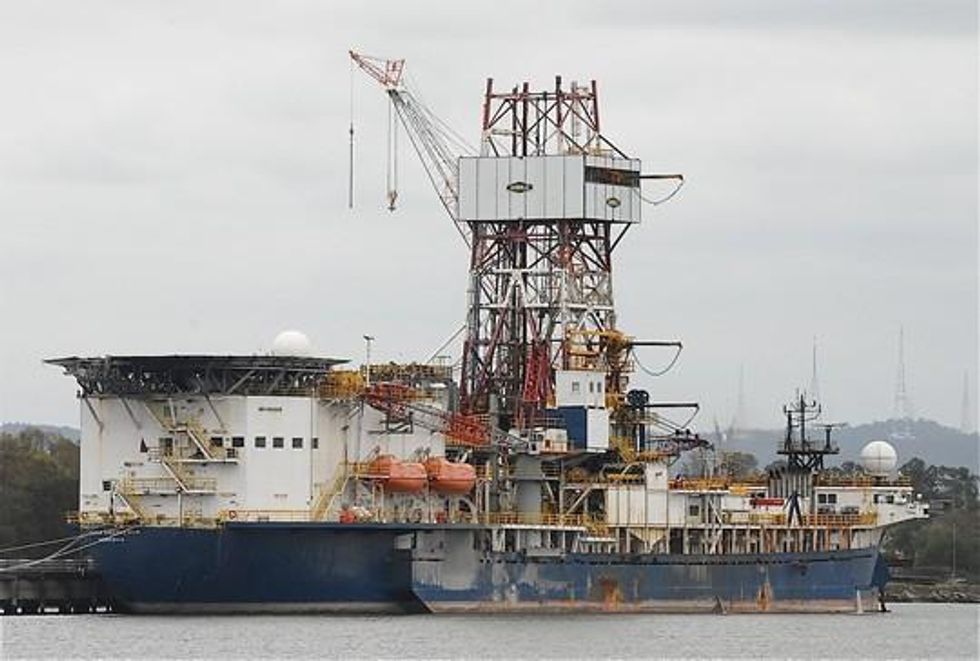The United States Coast Guard will establish and enforce "a 500-meter safety zone" around the Shell Oil Company's drilling vessel Noble Discoverer as it drills exploratory offshore wells in the sensitive Arctic waters off the coast of Alaska beginning this July.
In documents just obtained by Cryptome, the USCG says that "request for the temporary safety zone was made by Shell Exploration & Production Company due to safety concerns for both the personnel aboard the Noble Discoverer and the environment."
The 'buffer zone' would apply to all vessels, but the 'special rules' are clearly designed to make it more difficult for those trying to protest against the Shell's oil drilling in the Chukchi and Beaufort Seas this summer. "For any group or individual intending to conduct lawful demonstrations in the vicinity of the Noble Discoverer," reads the USCG memo, "These demonstrations must be conducted outside the safety zone."
"We have been warned there will be severe penalties but I now serve notice on Shell that we are at the point where, if needs be, we will break the injunctions and pay the price of that."
-Kumi Naidoo, Greenpeace
Earlier this year a federal judge specifically forbade the environmental group Greenpeace from coming within a 1,000 meters of Shell's drilling vessel while stationed in Puget Sound in Washington state.
While acknowledging the negative impact on the "environment and indigenous people" a mid-ocean collision caused by environmental activists attempting to block or board the ship could have in the Arctic, the USCG report made no mention of what impact a massive oil spill in the area would have on the same.
Though public comments on the rule were accepted by the USCG, only three comments were submitted and no public hearings were held on the issue. In a separate Department of Homeland Security document, also posted by Cryptome, the USCG was allowed to skip public comment because "immediate action [was] necessary to protect the public from the threat to navigational safety posed by" the tactics of environmental activists.
Reporting by the Courthouse News Service clarifies that the Puget Sound safety zones created by the USCG are separate from those established by the federal judge in Alaska earlier this year, which specifically prohibit Greenpeace from coming within 500 to 1,000 meters of the ships when they are within 12 miles of shore. The Coast Guard stressed that it is not required to enforce that injunction and that its rules apply to all vessels whether or not they are acting on behalf of Greenpeace.
During recent comments made at the Rio+20 Earth Summit, Greenpeace director Kumi Naidoo, who was arrested last year for scaling a drilling ship in the Arctic waters off Greenland, said that his organization would be not discouraged or intimidated by such injunctions.
"We have been warned there will be severe penalties but I now serve notice on Shell that we are at the point where, if needs be, we will break the injunctions and pay the price of that," he said.
Arguing the danger of allowing Arctic drilling was too high to ignore, Naidoo said his group would intensify its efforts, not soften them. "It is only when decent men and women said 'enough is enough' and 'no more' and were prepared to put their lives on the line and go to prison if necessary, and that is where we are. We have to intensify civil disobedience."
* * *
# # #


